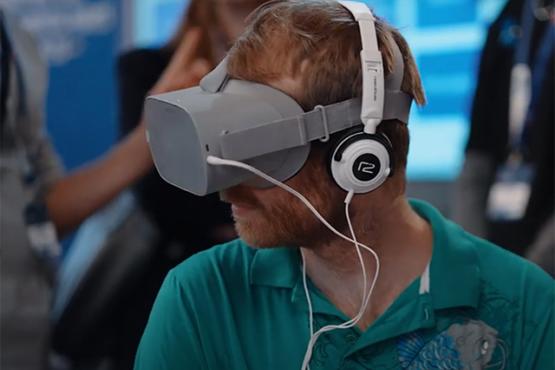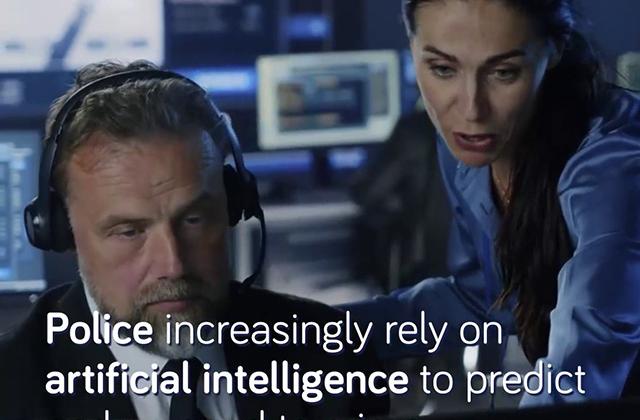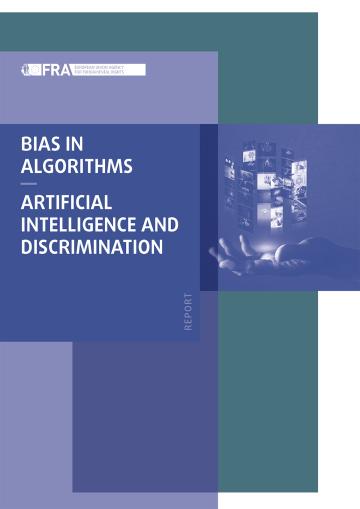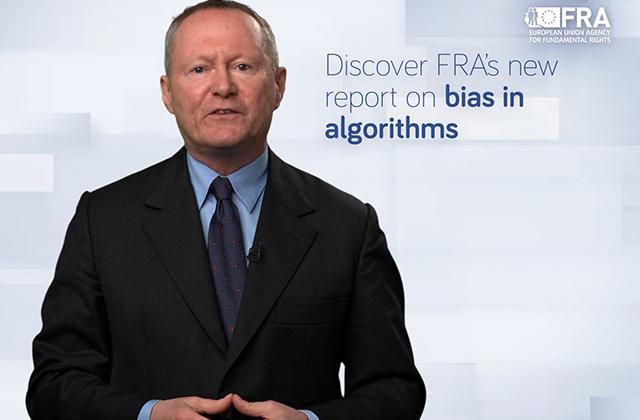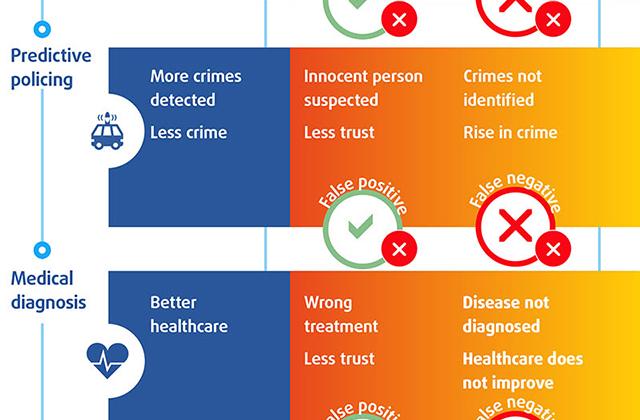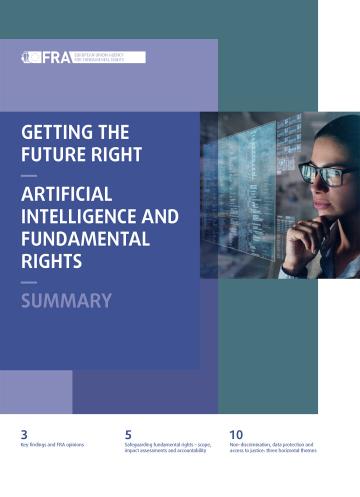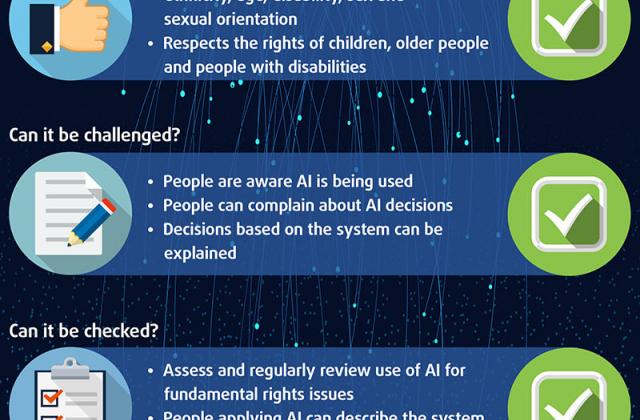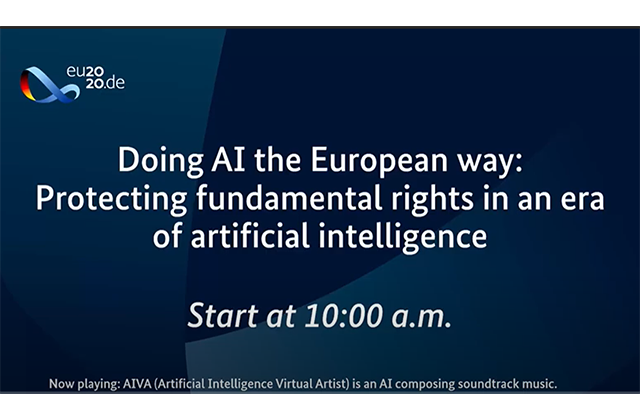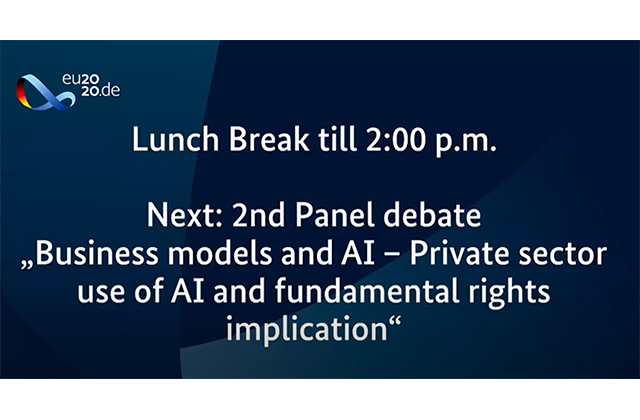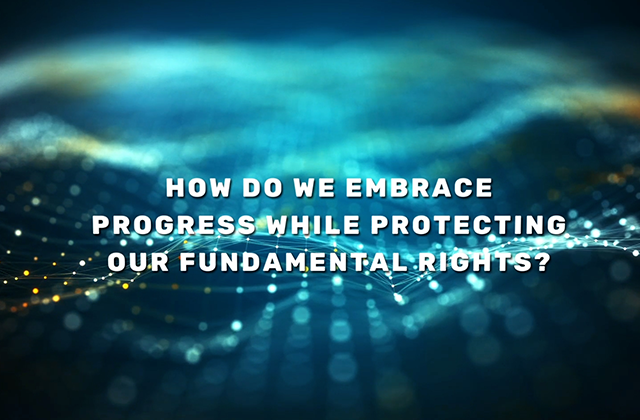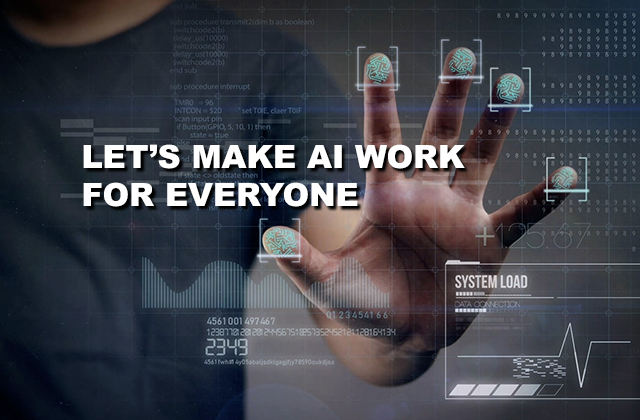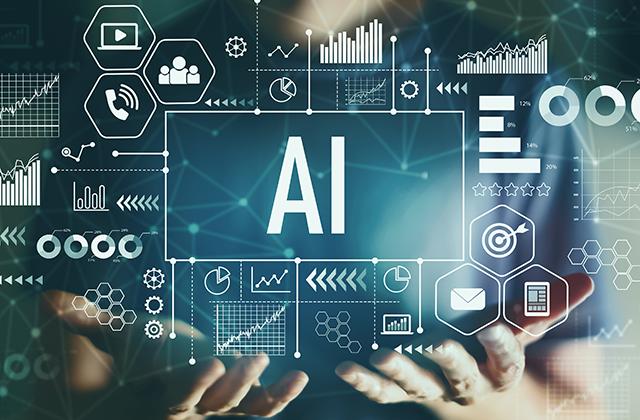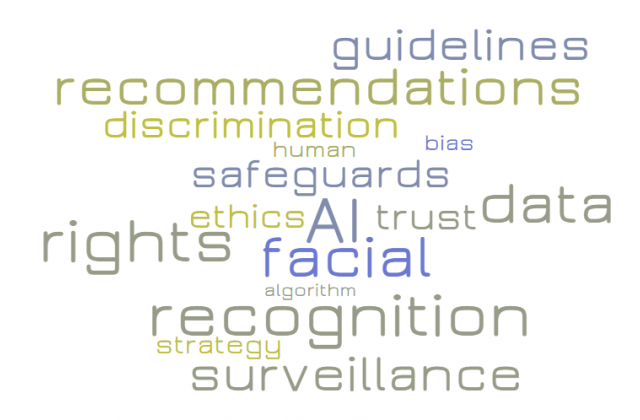Umetna inteligenca in velepodatki
Highlights
- Report / Paper / Summary4December2025Artificial Intelligence comes with both benefits and risks. Safe AI use that accounts for fundamental rights is thus crucial. While the 2024 EU AI Act was a milestone in this regard, its broad definitions regarding AI systems and high-risk AI could introduce loopholes for fundamental rights compliance. This report offers an empirical basis for much-needed practical guidance on the Act’s implementation. Based on interviews with AI developers, sellers, and users, FRA addresses challenges of its use in critical domains, like asylum, education, and employment. Our findings help guide next steps in realising the AI Act’s potential to ensure responsible innovation.
- VideoIn an increasingly digital world, tech advances affect almost all aspects of our lives and our rights. This FRF theme tackles topics such as regulating digitalisation without stifling innovation or surveillance-based advertising. Notable speakers include Catherine De Bolle, Executive Director at EUROPOL, Daniel Howden, Founder and Director of Lighthouse Reports, Nanna-Louise Linde, Vice-President for European Government Affairs at Microsoft, Alexandria Walden, Global Head of Human Rights at Google, among others.
- Report / Paper / Summary8December2022Artificial intelligence is everywhere and affects everyone – from deciding what content people see on their social media feeds to determining who will receive state benefits. AI technologies are typically based on algorithms that make predictions to support or even fully automate decision-making.
- Report / Paper / Summary14December2020V tem poročilu so predstavljeni konkretni primeri, kako podjetja in javne uprave v Evropski uniji (EU) uporabljajo ali poskušajo uporabljati umetno inteligenco. Obravnavane so možne posledice za temeljne pravice, prav tako je prikazano, ali uporabniki umetne inteligence upoštevajo pravice in na kakšen način.


